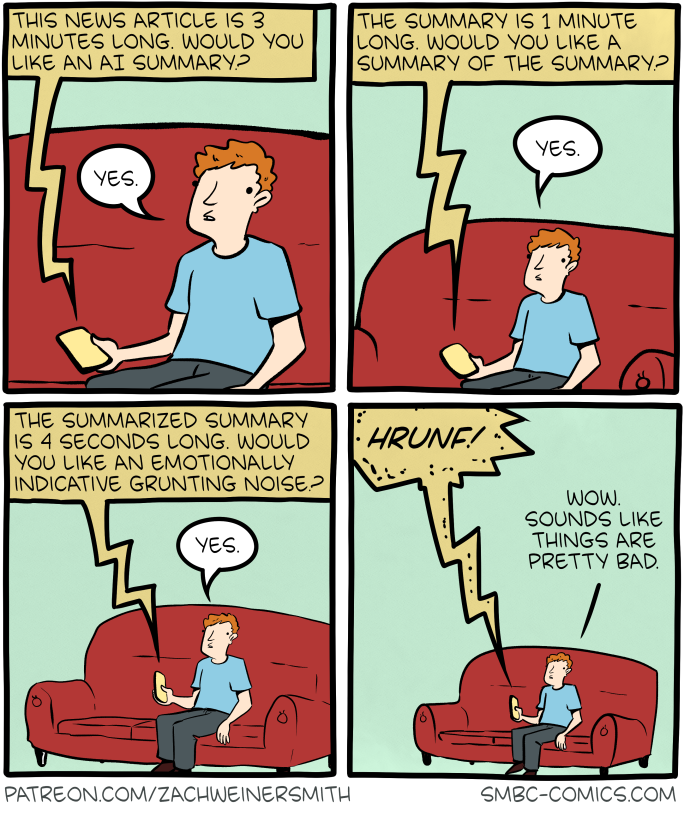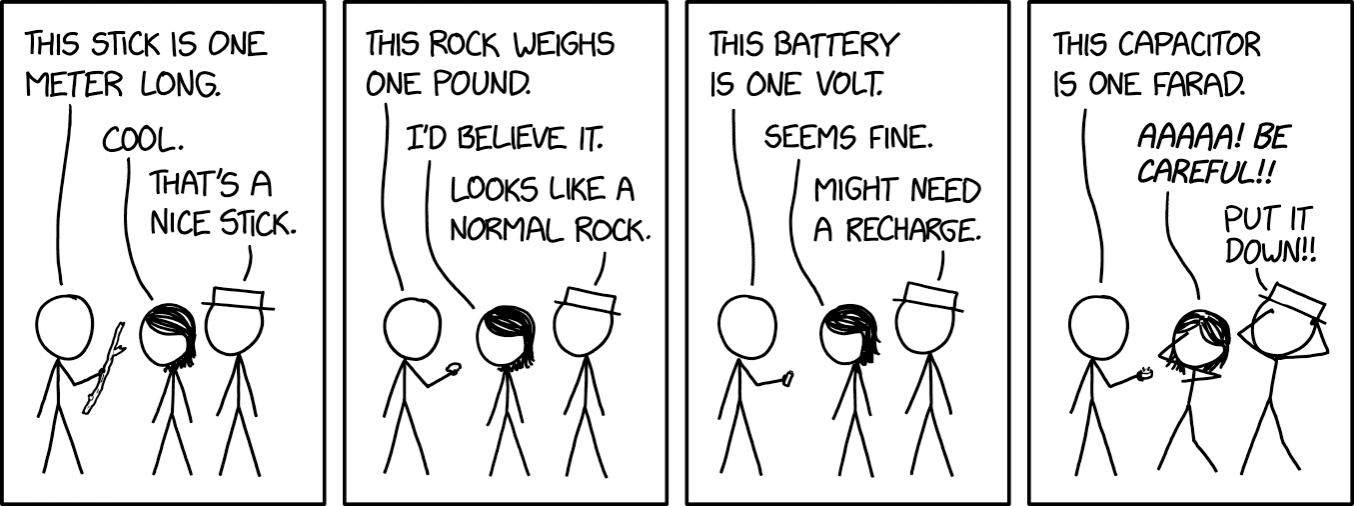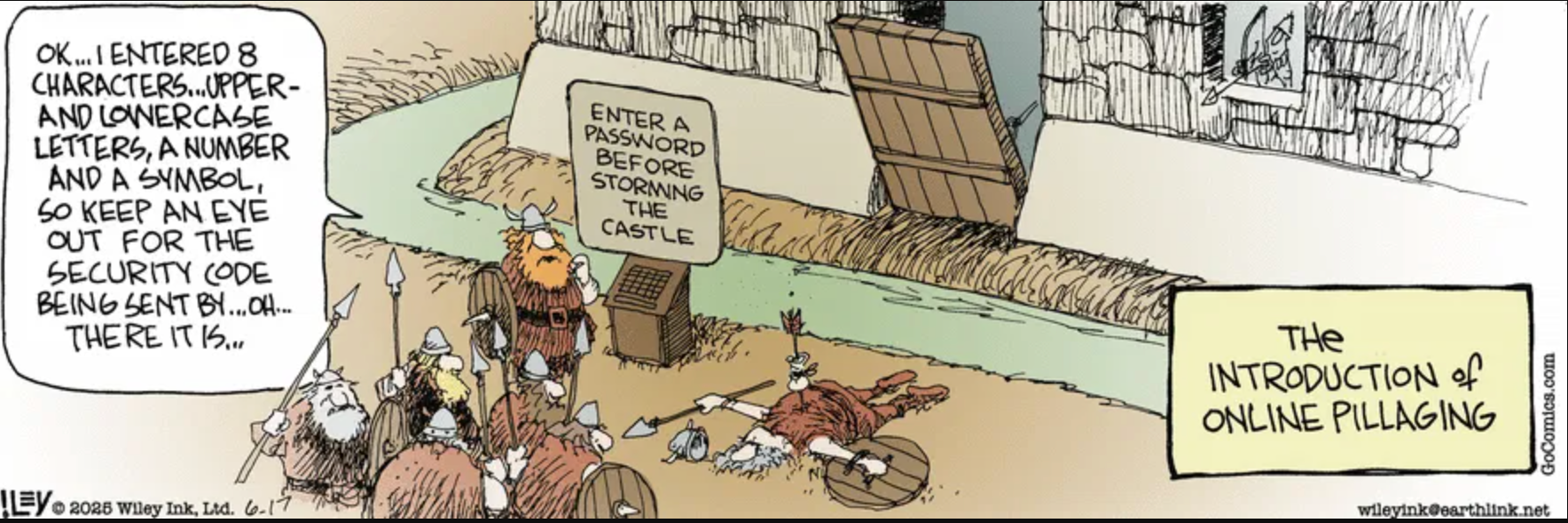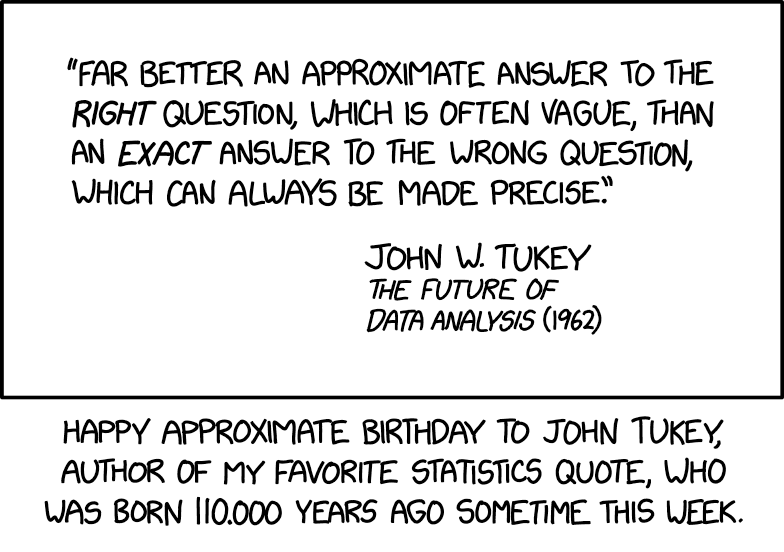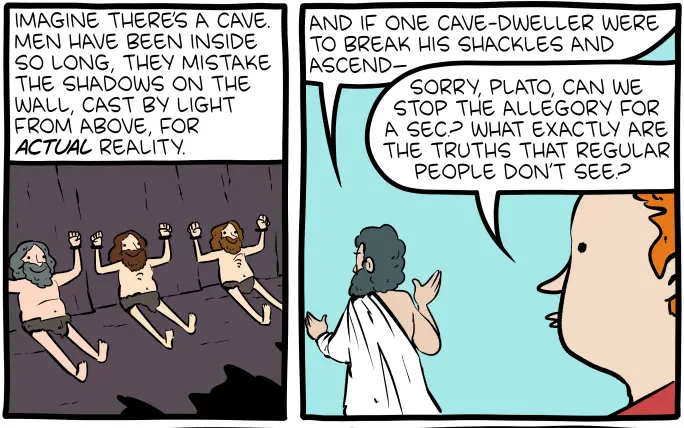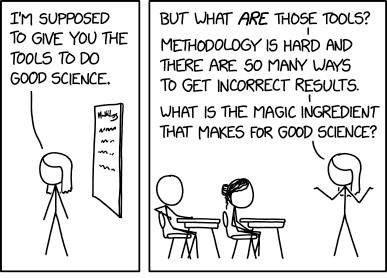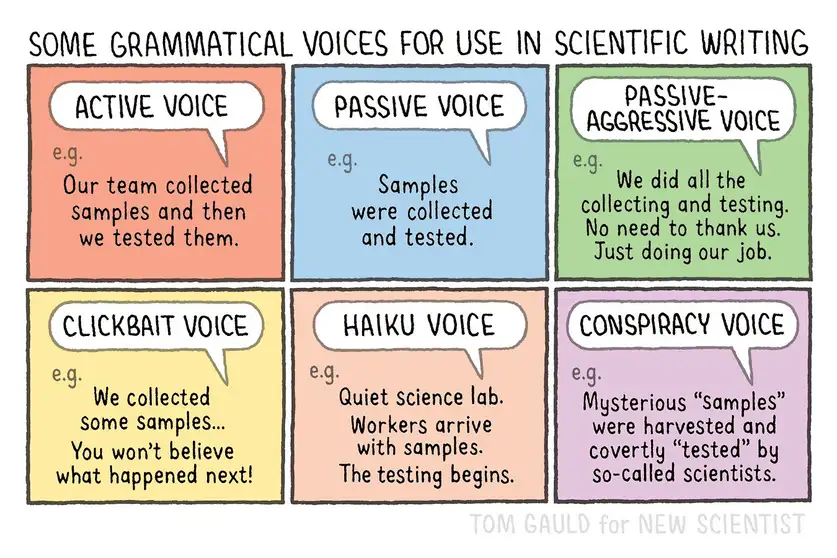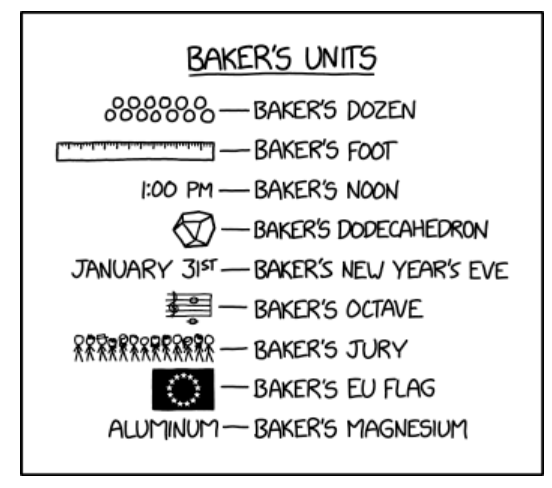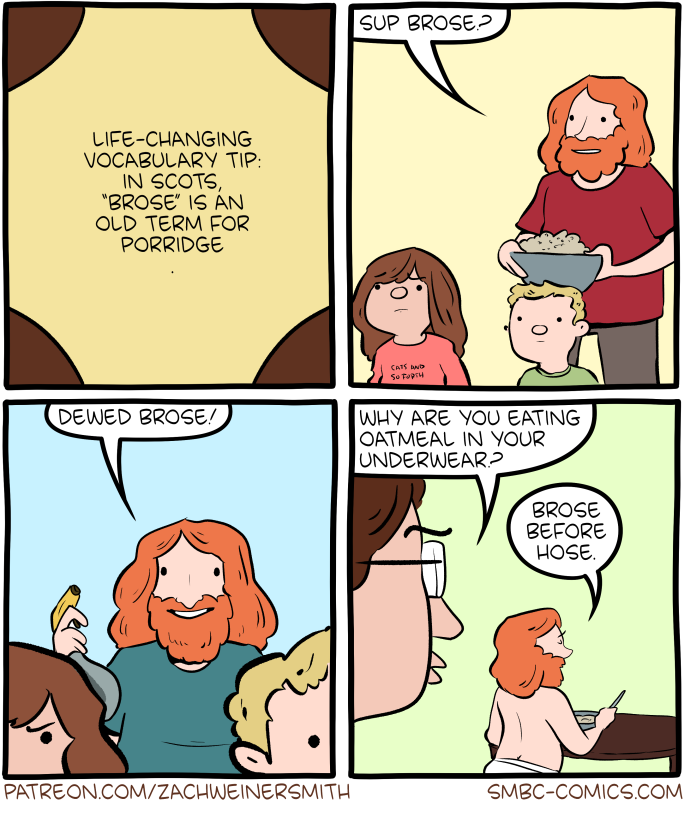Archive for Linguistics in the comics
Unit utility
Two-factor siege
Modern security measures are definitely siege-like. But in my recent experience, gmail classifies returned security codes as spam about half the time — I'm not sure how to work that into the joke.
Read the rest of this entry »
Tukey's birthday
Mouseover title: "Numbers can be tricky. On the day of my 110th birthday, I'll be one day younger than John Tukey was on his."
Read the rest of this entry »
Learning
For at least the past few thousand years, people have been thinking and debating about what "education" should be like, what its goals should be, and who should get (what kinds of) it.
Among many other issues, there's the question of whether educational content is preparation for actual use in later life, or part of incorporation into a shared culture, or just an exercise to demonstrate adequate intelligence and discipline and attentiveness. Yesterday's Frazz:
Read the rest of this entry »
Saturday Morning Breakfast Plurals
SMBC from a couple of days ago:
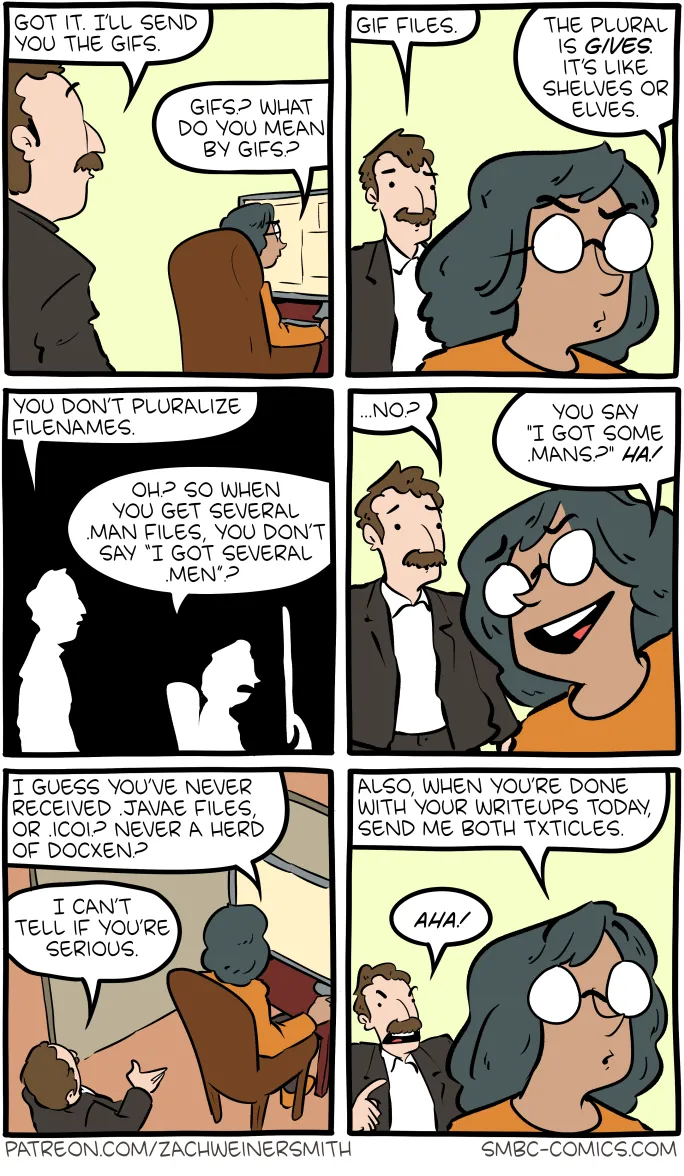
Read the rest of this entry »
Mangajin
I am the proud possessor of the complete run of Mangajin (pun for "magazine") from #1-#70 (1988-1997).
 |
Mangajin was the brainchild of Vaughan P. Simmons, whom I had conversations with at several meetings of the Association for Asian Studies (AAS) and corresponded with for a dozen years. I have utmost respect for him as someone who had the vision and fortitude to make a truly effective pedagogical tool for learning Japanese a reality.
I dare say that I learned more Japanese language from Mangajin than from any other single source — just as I learned more Mandarin from Guóyǔ rìbào 國語日報 (Mandarin Daily), the Republic of China newspaper that had furigana-like bopomofo rubi phonetic annotations for all hanzi, than from any other single source.
Read the rest of this entry »
